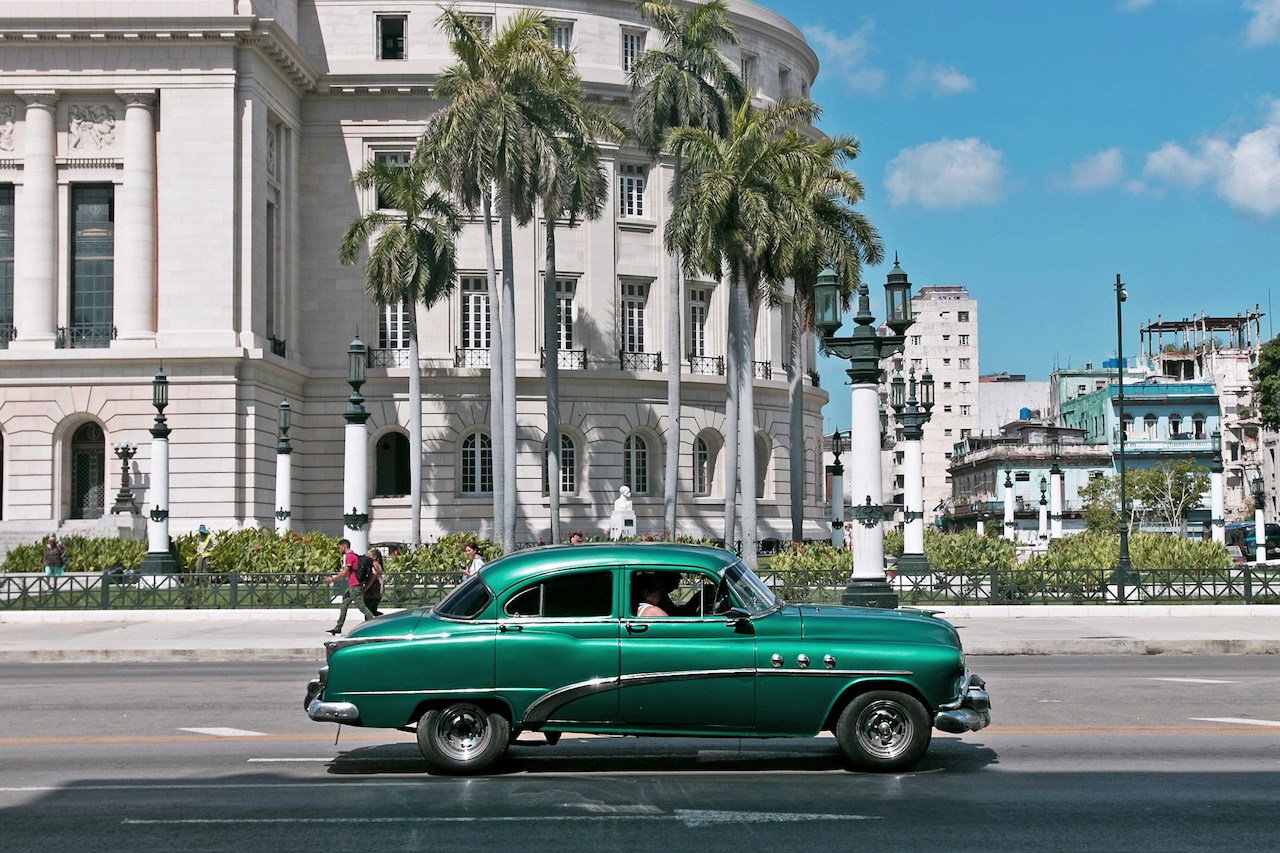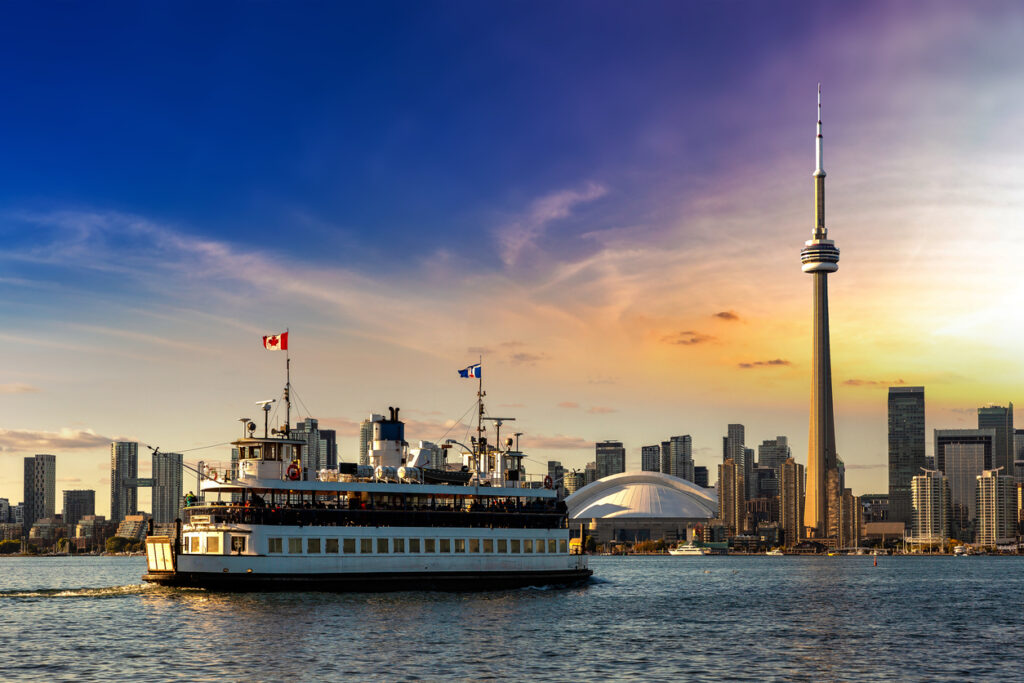Living in Cuba as an American in 2025 presents unique challenges and opportunities. From navigating recent policy changes and economic conditions to understanding healthcare requirements and community resources, it’s essential to stay informed. This guide provides key insights to help Americans residing in Cuba adapt and thrive in the current environment.
Snapshot of expat life in Cuba
- Primary tax forms: Form 1040 (U.S.); Cuban tax forms as applicable
- Tax year: Calendar year (January 1 – December 31)
- Tax deadline: April 15 (U.S.); March 31 (Cuba)
- Currency: Cuban Peso (CUP)
- Population: Approximately 11 million
- Number of Americans living in Cuba: Data not readily available
- Capital city: Havana
- Primary language: Spanish
- Tax treaty: No
- Totalization agreement: No
Americans living in Cuba: Visa types
For U.S. citizens seeking permanent residency in Cuba, the primary visa categories include:
E-1 Visa
Who it’s for: Foreign nationals who are parents, children, or spouses of Cuban citizens.
Overview: The E-1 Visa facilitates family reunification by allowing close relatives of Cuban citizens to reside permanently in Cuba.
Requirements:
- Proof of familial relationship (e.g., marriage or birth certificates).
- Deposit of required funds (historically 5,000 CUC; now typically in Moneda Libremente Convertible (MLC) or USD) into a Cuban bank account.
- Evidence of financial self-sufficiency, such as income from employment, pension, or foreign assets.
- Medical examination to confirm good health.
- Permanent residence in the home of the Cuban family member.
E-2 Visa
Who it’s for: Foreign nationals not covered under the E-1 category but who have explicit authorization from the Directorate of Identification, Immigration, and Foreigners (DIIE).
Overview: The E-2 Visa is designed for individuals who have received special permission to reside permanently in Cuba, often based on unique circumstances or contributions to Cuban society.
Requirements:
- Authorization from the DIIE.
- Deposit of 5,000 CUC into a Cuban bank account.
- Proof of financial independence.
- Medical examination to ensure good health.
- Established residence in Cuba.
Navigating the process of obtaining permanent residency in Cuba can be complex. It’s advisable to consult with Cuban immigration authorities or legal experts familiar with Cuban immigration law to ensure all requirements are met and to facilitate a smoother application process.
How to apply for a Cuban visa as a U.S. citizen
Applying for permanent residency in Cuba as a U.S. citizen involves several key steps. Here’s a clear, step-by-step guide to help you navigate the process:
1. Choose your visa category
Decide if you qualify for the E-1 visa (for close family of Cuban citizens) or the E-2 visa (for those with special authorization).
2. Gather required documents
Prepare the necessary paperwork, including:
- Valid U.S. passport
- Proof of relationship (for E-1) or DIIE authorization (for E-2)
- Medical certificate of good health
- Evidence of financial self-sufficiency
- Police clearance certificate
3. Deposit the required funds
Open a Cuban bank account and deposit 5,000 CUC as required by both visa types.
4. Complete and submit your application
Visit your nearest Cuban consulate or embassy. Submit your documents, completed application form, and proof of deposit.
5. Attend an interview and medical exam
Participate in a medical examination and, in some cases, an interview with Cuban authorities.
6. Wait for approval
Cuban immigration will review your application. Processing times can vary, so be prepared for some waiting.
7. Finalize your residency
Once approved, register your permanent address in Cuba and complete any additional local requirements.
Healthcare options for Americans living in Cuba
Cuba is well known for its comprehensive public healthcare system, but as an American expat, you’ll find that navigating your options can be a bit different than what you may be used to back home. Here’s what you need to know about healthcare as an American living in Cuba.
How the Cuban healthcare system works
Cuba’s healthcare system is state-run and universally accessible to Cuban citizens and residents. Medical care is provided free of charge or at low cost in public hospitals and clinics. The government emphasizes preventative medicine, and there’s a strong network of family doctors and polyclinics throughout the country.
- Care is provided by government-employed doctors and nurses.
- Private healthcare is extremely limited—most facilities are public.
- Facilities for foreigners are often separate from those for locals, and fees are charged in foreign currency.
Healthcare options for Americans living in Cuba
As an American expat with permanent residency, you may have access to Cuba’s public healthcare system. However, the experience can differ from that of Cuban nationals.
- Public healthcare: You can typically access public clinics and hospitals, but services for foreigners are often provided at “international clinics” that charge in foreign currency and may have shorter wait times and English-speaking staff.
- Private insurance: While private health insurance is not widely accepted within Cuba, having international health insurance can be helpful for emergencies or for seeking care outside the country.
- Medical evacuation: Some Americans choose to keep coverage for emergency evacuation, as certain treatments or medications may not be available locally.
Pros and cons of healthcare for American expats living in Cuba
Pros
- Affordable care compared to U.S. standards.
- Strong focus on preventative medicine.
- Access to well-trained medical professionals.
Cons
- Limited access to some medications or advanced treatments.
- Facilities and equipment may not meet U.S. expectations, especially outside Havana.
- Language barriers can arise, though international clinics may offer English-speaking staff.
- Out-of-pocket payment is typically required at international clinics.
Understanding these options allows you to prepare and make informed decisions about your healthcare while living in Cuba.
Cost of living for American expats living in Cuba
The cost of living in Cuba can feel quite different from what you may be used to in America. While some basics—like local produce or public transport—can be surprisingly affordable, imported goods, housing for foreigners, and certain services may cost more than expected. Navigating this new financial landscape is an important part of feeling settled and secure as an expat.
Here’s a direct comparison of typical monthly costs for an American expat living in Havana versus someone living in a mid-sized U.S. city:
| Expense | Havana, Cuba (USD) | US Mid-sized City (USD) |
| Groceries | $150 – $300 | $350 – $600 |
| Housing (1BR apt, city center) | $500 – $1,000 | $1,300 – $2,000 |
| Public transport | $5 – $20 | $60 – $120 |
| Phone plan (basic, monthly) | $30 – $50 | $40 – $70 |
Note: Prices in Cuba can fluctuate, especially for imported items, and may be higher for expats than for local residents. Housing for foreigners is often more expensive due to legal requirements and limited supply.
Pros of the cost of living in Cuba
- Affordable daily essentials: Local fruits, vegetables, and public transport are budget-friendly.
- Lower healthcare costs: Medical services—even at international clinics—are generally less expensive than in America.
- Minimal need for a car: Many expats get by without owning a vehicle, saving on transportation costs.
Cons of the cost of living in Cuba
- Higher costs for expat housing: Rental prices for foreigners are often much higher than what locals pay.
- Imported goods are expensive: Items like toiletries, electronics, or specialty foods can be hard to find and pricey.
- Limited variety: Choices for groceries and consumer goods may be restricted compared to what you’re used to in the U.S.
- Upfront payments: Many services, including rent and utilities, require cash or payment in foreign currency.
Adjusting to Cuba’s cost of living takes some planning, but with the right mindset and preparation, you’ll find ways to enjoy life while managing your budget effectively.
Where do American expats tend to live in Cuba?
While Americans live throughout Cuba, most expats settle in a few key areas that offer a balance of comfort, community, and amenities:
- Havana: The capital is by far the most popular destination for American expats. Neighborhoods like Vedado, Miramar, and Habana Vieja offer international schools, embassies, and a lively cultural scene, making it easier to connect with fellow expats and locals alike.
- Varadero: Known for its stunning beaches and resort lifestyle, Varadero appeals to Americans seeking a more relaxed, coastal environment. Many remote workers and retirees enjoy the slower pace and beautiful surroundings here.
- Santiago de Cuba: As Cuba’s second-largest city, Santiago has a rich history and vibrant music scene. It attracts Americans interested in culture, the arts, and a slightly lower cost of living than Havana.
- Trinidad: This picturesque colonial town is popular among Americans who want a quieter, small-town feel with easy access to Cuba’s natural beauty and a strong sense of local tradition.
Tax implications for Americans living in Cuba
Navigating taxes as an American living in Cuba can feel overwhelming, especially given the unique relationship between the two countries. We know the questions that keep you up at night: Do you still have to file U.S. taxes? What about Cuban taxes? How does income earned abroad get taxed, and what about your Social Security? Let’s break it all down together, so you feel confident about your next steps.
American expats tax obligations
As an American expat in Cuba, your tax landscape involves several moving parts—some familiar, some unique to your situation. Here’s what you need to know:
Filing U.S. tax returns
Even though you’re living in Cuba, you’re still required to file a U.S. federal tax return every year if your income meets the IRS filing threshold. This rule applies no matter where you live in the world.
- Who needs to file? If you’re a single filer under 65 with worldwide income over $15,550 (for 2025), you must file. The threshold varies by filing status and age.
- What do you report? You need to declare all income—whether it’s earned in Cuba, the U.S., or anywhere else.
- Deadlines: Expats get an automatic two-month extension (to June 15), but if you owe taxes, interest starts accruing from April 15.
Cuban taxes
Living in Cuba means you may also face Cuban tax obligations, especially if you’re working or running a business locally.
- Residency status matters: If you’re considered a Cuban tax resident (typically after living in Cuba for more than 183 days in a year), you may be taxed on your worldwide income in Cuba.
- Income sources: Income earned in Cuba is subject to Cuban income tax. The rates, deductions, and processes differ significantly from the U.S. system.
- Double taxation risk: Because there’s no tax treaty between the U.S. and Cuba, there’s a real possibility of being taxed twice on the same income. We’ll share how to minimize this risk in the next sections.
Foreign Earned Income Exclusion (FEIE)
The Foreign Earned Income Exclusion is one of the most powerful tools for Americans abroad. If you qualify, you can exclude up to $130,000 (for 2025) of foreign earned income from your U.S. taxes.
- Who qualifies? You need to meet either the Physical Presence Test (330 full days in a foreign country in a 12-month period) or the Bona Fide Residence Test (a full tax year as a resident of another country).
- What’s excluded? Only earned income (salary, wages, self-employment) qualifies—not rental income, dividends, or pensions.
- How to claim: You must file IRS Form 2555 along with your tax return.
Foreign Tax Credit
The Foreign Tax Credit lets you offset U.S. taxes with certain taxes you’ve paid to the Cuban government.
- How it works: If you pay income taxes in Cuba, you can often claim a dollar-for-dollar credit against your U.S. tax owed, reducing (or sometimes eliminating) double taxation.
- Limitations: You can’t use the same income for both the Foreign Earned Income Exclusion and the Foreign Tax Credit, so it’s important to choose the strategy that works best for you.
- How to claim: File IRS Form 1116 with your tax return.
Tax treaty
Currently, there’s no tax treaty between the U.S. and Cuba. This is a big deal because tax treaties often prevent double taxation and clarify which country can tax specific types of income.
- What does that mean for you? You need to be extra careful about double taxation. The Foreign Earned Income Exclusion and Foreign Tax Credit become even more important, as you won’t get additional treaty-based relief.
- Stay informed: Laws and relationships can change—monitor updates, or work with a tax professional who does.
Reporting foreign bank accounts
If you have Cuban bank accounts (or other foreign financial accounts) with a combined balance over $10,000 at any point during the year, you must report them to the U.S. Treasury.
- How to report: File the Foreign Bank Account Report (FBAR, FinCEN Form 114) electronically by April 15 each year (with an automatic extension to October 15).
- Why it matters: Penalties for not reporting can be severe, so don’t skip this step—even if you’re not earning interest.
Social Security
If you’re self-employed or working for a U.S. company while in Cuba, you may still owe U.S. Social Security and Medicare taxes.
- No totalization agreement: The U.S. and Cuba do not have a totalization agreement, so you can’t avoid paying U.S. self-employment taxes by paying into the Cuban system.
- Receiving benefits: Due to the U.S. embargo and related restrictions, receiving Social Security payments while physically residing in Cuba is complicated. Payments may be withheld while you’re in Cuba and could be released once you reside in a country where payments are permitted.
- Plan ahead: If Social Security is part of your retirement income, factor this into your planning, and consult with a tax professional about your options.
We understand the stress and uncertainty this can create—especially when the rules are complex and sometimes change. We’re here to help you make sense of it all, so you can focus on building your life in Cuba with peace of mind.
Frequently Asked Questions
-
Can Americans live in Cuba long-term, and what are the main challenges?
Yes, Americans can live in Cuba long-term, though it usually requires a visa or residency permit. The key challenges include adapting to a different culture, managing with limited access to certain goods and services, and navigating the complex relationship between the U.S. and Cuba. Financial planning is essential, as U.S. bank cards generally don’t work in Cuba and banking can be complicated for expats.
-
Do Americans living in Cuba have to pay U.S. taxes?
Yes, Americans living in Cuba are required to file a U.S. tax return every year if their income exceeds the IRS threshold. This applies no matter where you live or earn your income. You’ll need to report your worldwide income, including earnings from Cuban sources, to the IRS.
-
How can Americans living in Cuba avoid double taxation on their income?
Americans in Cuba can use the Foreign Earned Income Exclusion (FEIE) or the Foreign Tax Credit to help reduce or eliminate double taxation. Since there’s no U.S.-Cuba tax treaty, you must carefully apply these provisions—usually by excluding earned income with Form 2555 or claiming a credit with Form 1116 for taxes paid to the Cuban government.
-
Do Americans living in Cuba need to report Cuban bank accounts to the U.S. government?
If you have Cuban bank accounts and the total value of all your foreign financial accounts exceeds $10,000 at any point during the year, you must file an FBAR (FinCEN Form 114) with the U.S. Treasury. This requirement applies to all American expats, including those in Cuba, and failure to report can result in significant penalties.
-
Can Americans living in Cuba receive Social Security benefits?
Receiving Social Security payments while residing in Cuba is restricted due to U.S. embargo rules. Typically, benefits are withheld while you’re in Cuba, but may be released when you move to another country where payments are allowed. If Social Security is part of your retirement plan, it’s crucial to understand these restrictions and plan ahead.

 Connect on LinkedIn
Connect on LinkedIn

